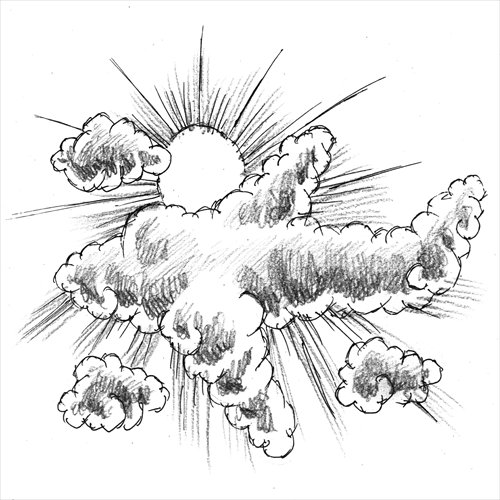HOME >> OP-ED
MH370 mistakes reflect stagnant politics
By Ding Gang Source:Global Times Published: 2014-3-19 19:43:01

Illustration: Peter C.Espina/GT
Malaysia is poised to escape the middle-income trap, but also ready to fall back into it.
Normally the middle-income trap refers to countries with per capita GDP ranging from $1,000 to $12,000. GDP per capita in Malaysia already reached $1,000 by 1977, and $11,000 by 2013. After ups and downs over almost four decades, it seems Malaysia could walk out of the middle-income trap very soon.
Nonetheless, according to the Asian Development Bank that created the concept, GDP per capita is only a superficial indicator. The more accurate definition of the middle-income trap is that when a country enters the ranks of middle-income countries, a series of problems emerge, including rising labor costs, a lack of technological innovation, and subsequent economic stagnation.
There are two aspects of the definition: rising productivity and good governance. The essence of governance here means encouraging reasonable competition to maximize the value of talent and give boost to innovation.
Malaysia's poor response following the disappearance of flight MH370 reflected the fact that the country is still way behind in terms of governance. Behind the chaotic information are the flaws in Malaysia's system of governance.
There are both systematic and cultural reasons behind Malaysia's poor governance. But it is more related to the lack of secularization.
One driving force in the rise of Malaysia's GDP per capita has been the export of abundant raw products such as oil and rubber.
Malaysia's state-owned oil companies provide almost half of the government budget and expenditure, but they've also fostered an inefficient governing class.
Malaysia is a multi-ethnic country, with Malays making up 68 percent of the population, Chinese 24.6 percent, and Indians 7 percent. According to the law, Chinese Malaysians, who were historically dominant in the economy despite their smaller numbers, cannot take positions as top leaders; and Malays must make up two-thirds of ministers and parliamentary members, and three-fourths of civil servants.
Malays also enjoy special policies in other fields such as college admission and civil servant recruitment. Malays even enjoy a higher quota in the issuing of taxi operation licenses.
Some Malays simply acquire the licenses and rent them to Chinese, collecting unearned income.
This rigid system which shows special care for Malays, to a certain extent, helps different ethnic groups to stay in their own places and thus boosts social stability. But this also closes the channel for upward mobility because it fails to provide a reasonable platform for competition.
The special privileges enjoyed by Malays give leeway for corruption. And in terms of governance, these privileges translate into a conservative group with vested interests and a lack of talent.
The modernization of Malaysia's governance is also related to Islamic modernization.
In 2001, then prime minister Mahathir Mohamad announced that Malaysia was a Muslim country. Current Prime Minister Najib Razak also declared in 2007 that Malaysia has never been a secular country.
Even today, some states in Malaysia still maintain elements of Sharia law. Different religious populations have different civil laws, even when living in the same place.
Islam is not a negative element. However, integrating religion with the law and politics rather than separating them may cause social conservatism and isolation.
In the wake of the MH370 incident, the New York Times published an article originally titled "Missing Jet Exposes a Dysfunctional Malaysian Elite."
In fact, this is a misinterpretation that sees Malaysian politics as strictly controlled by the elite. What's dysfunctional is not elite politics itself, but a rigid, dull system that is responsible for selecting the political elite.
Malaysia is determined to enter the ranks of developed countries by 2020. But judging from its handling of the MH370 incident, Malaysia's modernization will take far longer than this.
The author is a senior editor with People's Daily. He is now stationed in Brazil. dinggang@globaltimes.com.cn. Follow him on Twitter at @dinggangchina
Read more in Special Coverage:
